Asian American and Pacific Islander Heritage Month Playlist
May 31, 2021
In celebration of Asian American and Pacific Islanders Heritage Month, the Daily Sundial is highlighting five Asian American and Pacific Islander singers and music groups.
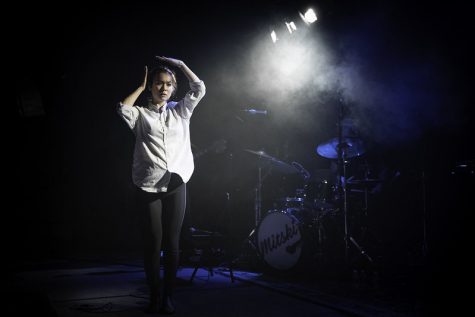
Mitski
Mitski is a Japanese American singer, songwriter and musician. She was born in Japan, but she moved around a lot with her family and eventually moved to New York for college. In “Your Best American Girl,” a song in her 2016 album “Puberty 2,” Mitski sings about a girl who has difficulty being accepted by the all-American family of the son she wants to date. She sings, “Your mother wouldn’t approve of how my mother raised me/ But I do, I think I do/ And you’re an all-American boy/ I guess I couldn’t help trying to be your best American girl.” This song shows the common issue of Asian Americans feeling the pressure to conform to appear “more American” to be accepted by others.
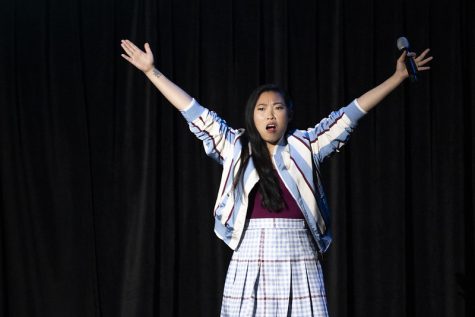
Awkwafina and Margaret Cho
Awkwafina was born Nora Lum in Stony Brook, New York to her Chinese American father and Korean mother. She is an Asian American actress, comedian, writer, producer and a rapper. It was in 2016 when she collaborated with Margaret Cho, a Korean American stand-up comedian, actor, fashion designer, author and musician, in a rap song called “Green Tea.” In their song, they call out many Asian stereotypes, including the objectification of Asian women. Another stereotype they touch is how Asian people are thought of in culinary roles. They rap, “Press 1 for pickup/ Press 2 for delivery,” also making the point that people judge when someone speaks English with Asian accents.
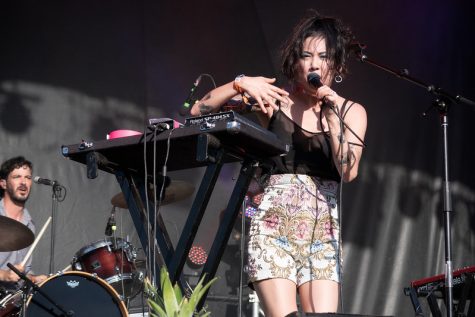
Japanese Breakfast
Japanese Breakfast is the stage name of Michelle Zauner, who was born in Seoul, South Korea, to a Korean mother and Jewish-American father. When she was a baby, her family moved to Eugene, Oregon. Her stage name was chosen to be an acceptable name for an Asian American artist, mixing something American (breakfast) with Japanese, which many assumed was her ethnicity. One of the most known songs from her 2016 album “Psychopomp” is “The Woman That Loves You.”
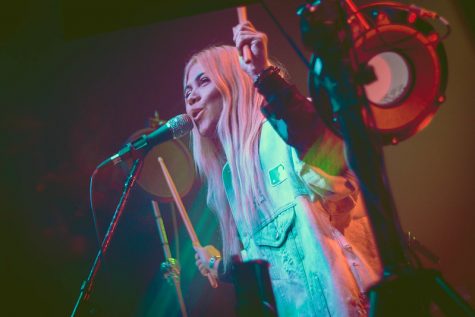
Hayley Kiyoko
Hayley Kiyoko is an Asian American singer, songwriter and actress. She is of Japanese descent from her mother’s side of the family. She has spoken about the issue of not being considered Asian American enough for her roles as an actress. Additionally, she has spoken openly about being embarrassed of being half Asian as a child because, “It wasn’t ‘cool’ being different,” according to her Instagram post. But she continued by writing that “being different is so powerful and liberating. Her songs focus more on supporting the LGBTQ+ community, such as the song “Girls Like Girls,” which normalizes girls liking girls with the lyric, “Girls like girls like boys do.”
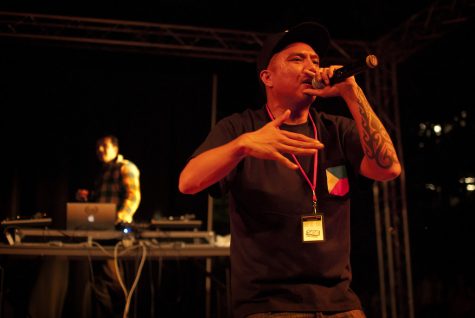
Blue Scholars
Blue Scholars is a Seattle-based hip-hop duo which formed while the members were attending the University of Washington. It is a half-Asian American hip-hop duo formed by Alexei Saba “DJ Sabzi ” Mohajerjasbi, who is of Iranian heritage, and George “MC Geologic” Quibuyen, also known as MC Geologic, the son of Filipino immigrants. The name of their group is a pun on “blue collar” and their songs tackle topics like socio economic issues and challenging authority. “OOF! EP” is their album that talks fully about Quibuyen’s heritage. In the first “Bananas,” he mentions the Hawaiian people and culture because he used to live in Hawaii as a child. In the song, he raps about how Hawaiians feel about the lack of opportunities and how others take the credit for things done by them. The lyrics highlight their struggle: “But when we say, ‘now,’ they say, ‘not yet’/ They don’t feel it but give it respect” and “You might find that shit’s surprising/They all act just like us/ Carrying the legacy of people divided/ Plagued by infighting tight knit, surviving/ People on the outside looking right about it/ Choose the safe route to fit they own palate.” The duo also empowers the youth and communities in the West Coast by bringing awareness to Filipino heritage, by adding diverse musical elements not seen on traditional hip hop songs with multimedia programs.

